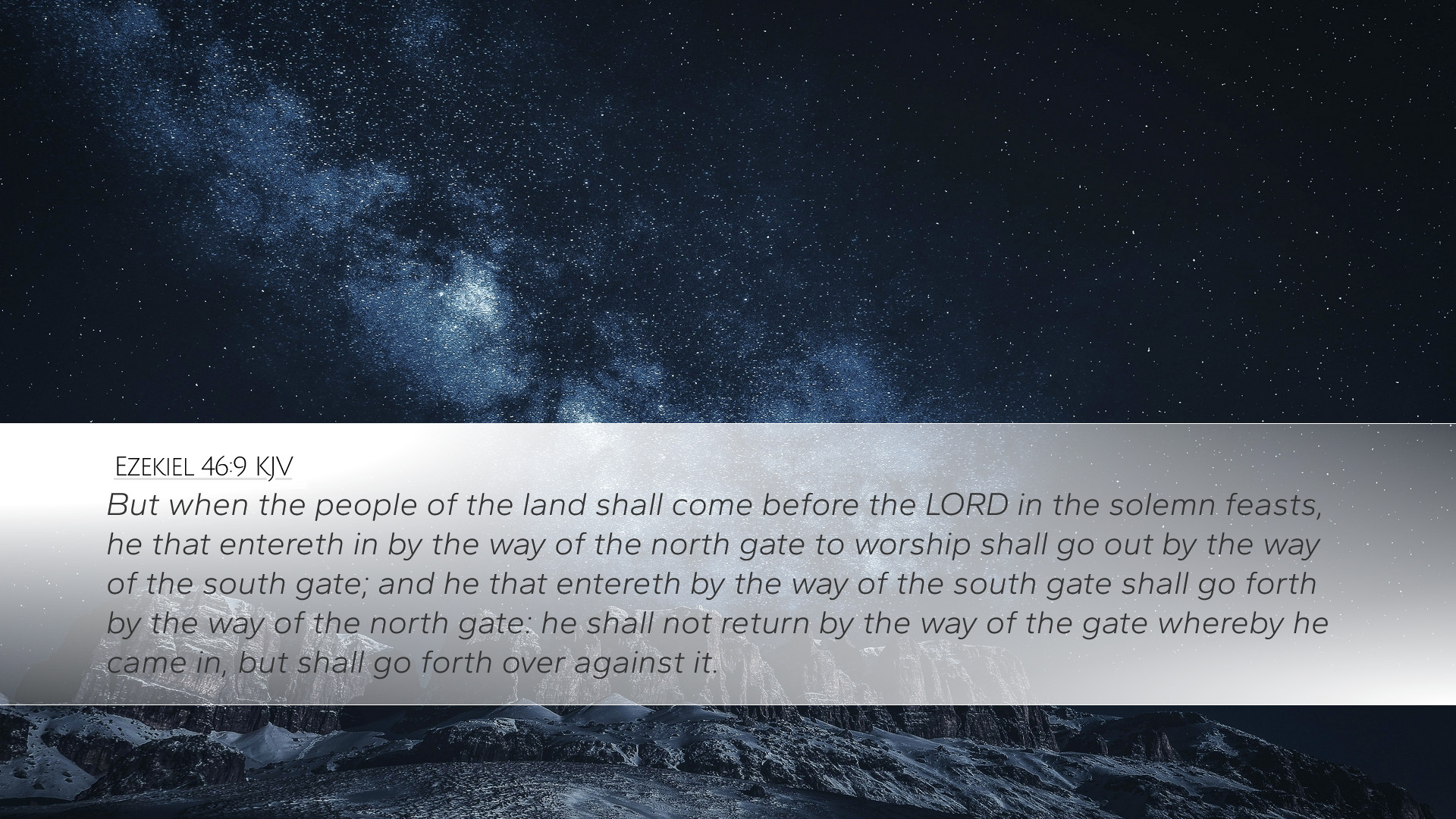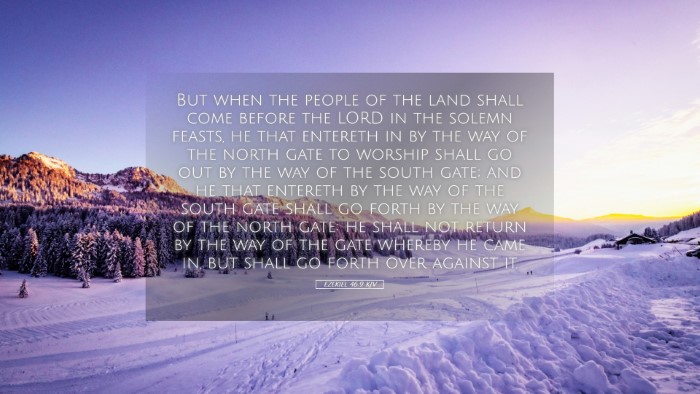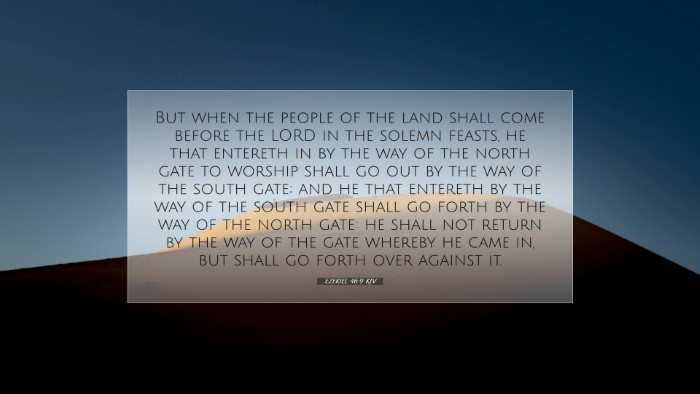Ezekiel 46:9 Commentary
Ezekiel 46:9 states: "But when the people of the land come before the LORD in the appointed feasts, he who enters by the north gate to worship shall go out by the south gate; and he who enters by the south gate shall go out by the north gate; he shall not return by the gate through which he came, but shall go out through the opposite gate."
Contextual Overview
This verse is located within a prophetic vision given to Ezekiel concerning the future temple, worship practices, and the restoration of Israel. The chapter outlines the regulations for entering and exiting the sacred space, thereby highlighting the importance of reverence and the sanctity of worship. The structure and symbolism of the gates are deeply significant, reflecting the orderliness of worship and the presence of the divine.
Detailed Exegesis
The directive regarding the gates can be understood as emphasizing the change in the worshippers' experience. Commentary from Matthew Henry emphasizes the contrast between the sacred and the secular, insisting upon the necessity for worshippers to engage in a transformative experience as they enter and leave the temple. Henry notes that passing through different gates symbolizes leaving behind the earthly realm and approaching the divine.
Henry's Insights:
- Worship requires a fresh perspective; one should not approach God with the same mindset as when they left.
- The movement through the gates signifies a physical and spiritual journey—a movement from the routine to the holy.
Symbolism of the Gates
The gates in Ezekiel’s vision serve multiple symbolic purposes:
- The North Gate and South Gate represent the entry and exit points of worshippers, illustrating the cycle of coming into God’s presence and returning transformed.
- Leaving through an opposite gate symbolizes repentance and renewal, suggesting that an encounter with God must lead to a change in direction in one's life.
Theological Implications
The instructions given in Ezekiel 46:9 highlights several important theological points:
- Reverence in Worship: The specific rules governing how one should enter and exit the temple emphasizes the sacredness of worship.
- Transformation through Worship: The stipulation that worshippers exit through different gates symbolizes the expectation that a genuine encounter with God results in personal transformation.
Albert Barnes elaborates on the implication of this transformed exit. He suggests that worship should not only be a routine practice but a sacred experience that alters one’s approach to the world. Barnes underscores the significance of leaving behind one’s old self and stepping into a renewed life following a profound experience with the divine.
Practical Applications
For pastors and church leaders, this verse serves as a reminder of the importance of fostering a culture in which worship leads to transformation.
- Encouraging congregations to enter worship with an open heart, ready for personal change.
- Designing worship services that facilitate a true encounter with God, compelling worshippers to leave transformed.
Conclusion
Ezekiel 46:9 offers a profound insight into the nature of worship. The act of entering and exiting the temple through different gates reminds believers of the transformative power of encountering God. It calls for personal reflection and encourages an understanding that worship is not merely a ritual, but a means to experience divine presence, leading to a renewed life.


